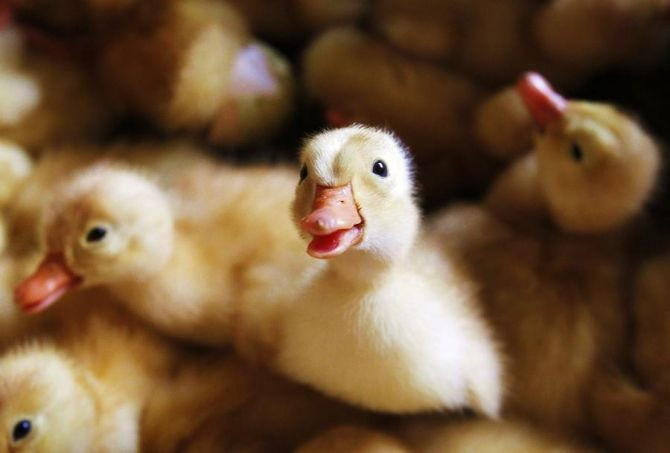More Countries Slap Bans on Australian Poultry After Flu Outbreak

More Asian countries have slapped new bans on Australian poultry imports after Japan on Monday cancelled all imports from across Australia following an avian flu outbreak on two Victorian duck farms.
Vietnam, Singapore, Indonesia and Hong Kong have banned all poultry products from Victoria, and Japan cancelled all imports from Australia, according to the Australian Chicken Meat Federation.
South Africa has also taken action by requiring certification confirming that the Australian poultry imports coming into the country have not come from within 20 kilometers, or 12.5 miles, of the quarantined sites.
The bans come just days after authorities quarantined two commercial duck farms north-west of Melbourne after finding low pathogenic avian influenza.
Australia said it was in the process of killing 24,000 ducks in hope of stopping the virus from spreading, according to the Department of Agriculture, Fisheries and Forestry.
“This is not the highly pathogenic H5N1 strain that has gained worldwide attention, nor is it closely related to that strain,” a statement on the department’s Website said.
There are no food safety issues, and the poultry and eggs are safe to eat the department said.
“The risk to human health is negligible,” the department said, and noted that the low pathogenic avian influenza case is “not an unusual occurrence” and is “on occasions” detected in wild birds in Australia.
The ACMF executive director Andreas Dubs has said the elicited responses, thus far, have been overreactions to the bird flu threat, according to The Australian, the country’s national newspaper.
"It's out of proportion to what I would consider the risk is," Dubs told the paper.
He indicated that he virus was localized and very low risk, and about half of the poultry exports went to Hong Kong, but the entire export market was only 4 to 5 percent of the total volume, so he believed that the financial impact of the new bans is rather small.
However he noted that there could be some effects on other animal-related products that contain eggs, like ice cream.
Dubs hoped the bans will soon be lifted.
The H5N1 bird flu killed at least six people in Asian in January of this year, and lab analysis has confirmed that of the 578 people who have been infected with the virus since 2003, more than half of the individuals have died-a mortality rate that has never been seen from a flu virus, according to the World Health Organization.
The WHO has said that the six people who died from the virus this past month contracted the virus either directly or indirectly from birds, and that the virus has not shown any dangerous changes or mutations.
"As far as we can see, the behavior of the virus has not changed. But these continued cases highlight the need for us to continue close surveillance of H5N1, watching for changes in the virus both in the laboratory and on the ground," the WHO said to Reuters.
Victorian officials said in a statement, last week, that the avian flu outbreak would have no risk to the public.
Dr. Hugh Millar, the state's chief veterinary officer said that the authorities acted with extreme precaution and were quick to eliminate any possibility that the avian virus could spread, according to the national paper.
"This is all about making sure that the virus doesn't one day in the future evolve and mutate into a more serious form," Millar said on Friday.
Although the source of the outbreak has not yet been confirmed, officials believe the virus could have been introduced from wild birds in the area.



























